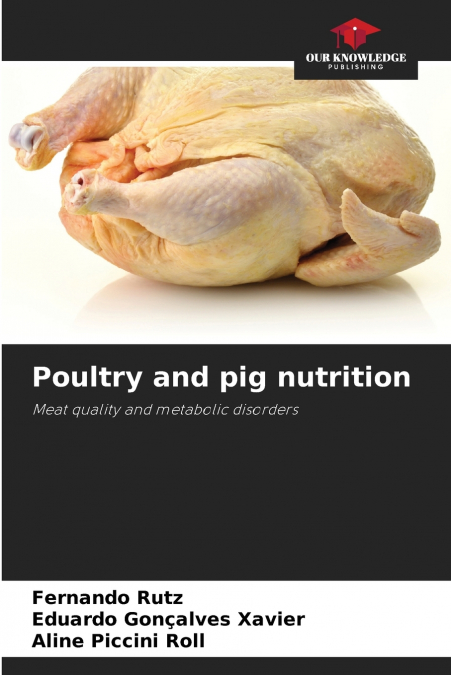
Aline Piccini Roll / Eduardo Gonçalves Xavier / Fernando Rutz
 Librería Perelló (Valencia)
Librería Perelló (Valencia)
 Librería Aciertas (Toledo)
Librería Aciertas (Toledo)
 El AlmaZen del Alquimista (Sevilla)
El AlmaZen del Alquimista (Sevilla)
 Librería Elías (Asturias)
Librería Elías (Asturias)
 Librería Kolima (Madrid)
Librería Kolima (Madrid)
 Donde los libros
Donde los libros
 Librería Proteo (Málaga)
Librería Proteo (Málaga)
For several decades, the main concern of nutritionists has been to satisfy the growing nutritional requirements of poultry and pigs resulting from the great advances in genetics. In parallel with meeting nutritional requirements for maximum performance, in a more recent period interest has arisen in nutritionally altering the quantitative and qualitative composition of carcasses. In the case of poultry, around 80 to 85% of the improvement in performance has been attributed to genetic improvement, so that the new commercial strains have muscles formed with twice as many muscle fibres and a larger diameter compared to traditional strains. However, all this genetic progress in chicken performance has had an adverse side effect, which is the appearance of metabolic diseases, especially related to breast muscles, such as woody breasts and PSE meats, among others. On the other hand, one of the most fascinating aspects of pork is that it can be enriched nutritionally. That’s why this book also covers how to meet the nutritional requirements of human beings through the nutritional management of pigs.